Wu Ming's Blog, page 4
January 6, 2011
Italian Fireworks: Wu Ming, Live at the British Library
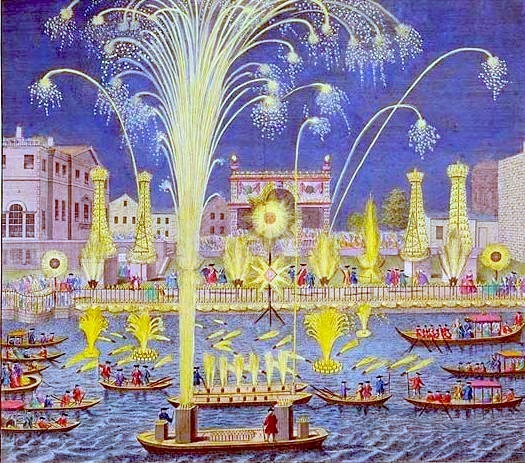
Here's the recording of the talk Wu Ming 1 and Wu Ming 4 gave at the British Library Conference Centre, London, on 13 October 2010. Thanks to Joshua Eichen for sending the mp3. He warned us: "It's not a clean edit at the front nor the back." In fact, it stops abruptly. No ending. If we remember correctly, what was left out was a more political question on Italy etc., and our answer(s). Anyway, here you've got more than 1 hour of stuff. Enjoy! (As your Superego commands).
[Click on the small Playtagger icon to listen without leaving this page. Click on the text link to listen on a new page. Right click and save (or ctrl + click and save) to download the mp3s.]
1. Introduction + Italian Fireworks (16'53″)
We show the booktrailer for Manituana – Shaun Whiteside's brief overture – Wu Ming 1 reads from Manituana (2nd Part, "Mohock Club", chapter 7).
2. The Mohocks (11'57″)
Wu Ming 4 explains what Manituana is about, focusing on the London section (translation by Shaun Whiteside)
3. Writing after Manituana: From Altai to the French Revolution (13'48″)
Wu Ming 1 looks back to a perilous phase in the band's life (2008-09), says a few things about the book we're currently working on, then answers a question on cinema and Thom Yorke's alleged interest in making a film based on Q. Wu Ming 4 adds some details.
4. "Ours is a praxis, not a method" (16'57″)
Wu Ming 1 answers a question on the way we write together, then another question on the "New Italian Epic".
5. Facebook? We don't want to be there (13'28″)
Wu Ming 1 explains why we don't like FB, and the way we use Twitter. Wu Ming 4 answers a question on how we get along: We get along through conflict.









January 1, 2011
Art Attack Italy: How to make a Book Bloc shield
The English may be a little clumsy, but the video is great. Until the end you'd never guess what book they're assembling.









December 30, 2010
Spectres, Italian crimes in Germany, Eurydice, Goodreads and the #bookbloc









December 6, 2010
Wu Ming 1 on translating Stephen King into Italian
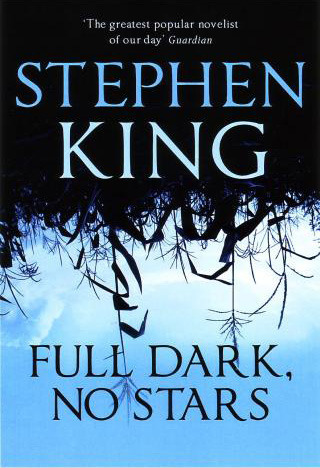
An interview with Wu Ming 1 is online at wordswithoutborders.com. Here's an excerpt:
King's style looks simple, but it is actually very difficult to translate. As an author, he's very fond of puns, neologisms, idioms, local slang and so on. He plays with all the singularities of the English language, precisely the stuff that can't be translated in any way! This is typical of, er, "monoglot" writers, by which I mean those writers who don't care about what happens to their works when they're translated into other languages.
There are basically two kinds of novelists: those who care about translations, like Italo Calvino and Umberto Eco, because they're used to exploring foreign languages, and those who don't care, like Elmore Leonard or Uncle Stevie, because they're perfectly happy with inhabiting their native language, with no forays in other cultures and koines.
If you're a careful, attentive reader, you can tell one kind of writer from the other simply by reading. There's a prose that's translation-conscious, and a prose that is not.









December 1, 2010
Manituana. English translation. Now Downloadable for Free
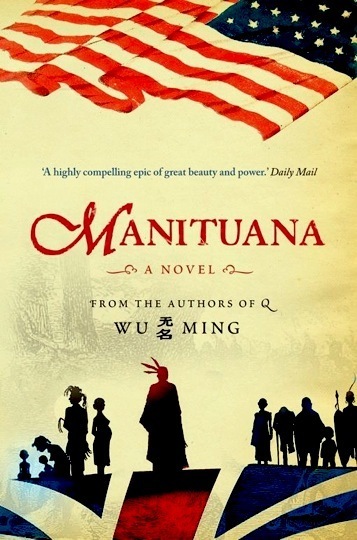
PDF, 13.7 mb
MOBI, 5.9 mb
ePUB, 4.7 mb
[Mind you, we used Calibre to convert from pdf to ePUB, and the result is CRAP. As we're just middle-age men of humanities, this is the most we can do at the moment. If you choose the latter format, you'll have to improve the layout yourself.]
Translated by Shaun Whiteside
Published by Verso Books
[They've got quite a cool website, by the way]
Download is completely gratis et amore dei. However, if you want to make a donation to support our work, please click the button below.

And if you decided to buy the book all the same, that would obviously be really fucking, uh, great.
Amazon UK – Amazon USA









November 29, 2010
The Only Truly Intolerable Scandal / #demo2010

The Leaning Tower of Pisa occupied by students, November 24, 2010
«It could be interesting to look closely at the classics the students chose to put on their shields. Let's look at the frontline.
Boccaccio's Decameron, which is about people sharing stories while waiting for the plague to end.
Asimov's The Naked Sun, which is the description of a world where humans no longer touch each other.
Melville's Moby Dick, which is an epic tale of obsession.
Cervantes' Don Quixote, ie the story of a proud, noble man led astray by an obsolete ideology (the chivalrous one).
Petronius' Satyricon, that is, the description of a greedy, decadent power.
Henry Miller's Tropic of Cancer, that is, a piece of «auto-fiction», a scandalous mix of autobiography and fiction.
Lenin's What Is To Be Done?, which deals with the problem of organization.
Deleuze & Guattari's A Thousand Plateaux, that is, the theme of nomadism, the nomadic war machine.
Shall we summarize? [...]
Our world is infected by the plague (Decameron).
The plague is the atomization of social relationships (The Naked Sun)
Those who refuse this state of things are often prey to an obsession that cripples their initiatives (Moby Dick), that is to say: the obsession with "Him," Silvio the Malignant Whale, this «berluscocentrism» affecting the public discourse.
This obsession becomes an ideological barrier and causes us to attack windmills that are put in front of us as baits (Don Quixote).
The risk is to be mesmerized by the scene of an outraged, sex-addicted, ever-carousing power (Satyricon).
We will avoid such risk only if we find a new story, a narrative of ourselves that will break into this world as a real scandal (Tropic of cancer), as opposed to all the fake scandals we see in the media. The emergence of a new, unified, conflict-bearing subjectivity would be the only truly intolerable scandal. «For it must needs be that scandals come», says the old maxim [Matthew, 18,7].
Hence the problem of organization (What Is to be done?) And, perhaps, the need to re-read Lenin, rejecting what is to be rejected, revamping what can be revamped.
Of course, today the process of organization can no longer aim at building the party of the proletariat as in the 20th century: organization must take into account the enemy's superior mobility, it must make us able to fight in an ever-changing situation, a scenario of constant deterritorialization (A Thousand Plateaux).
However, without a narrative, without stories to be told in the night around the campfire, any guerrilla warfare in the desert is doomed to failure. And so we return to the first book, the Decameron: it is thanks to the stories we tell one another that we can prevent the spreading of the plague [...]
Well, Q is the only book in the "Book Bloc" whose authors are still living. Should they have chosen only dead writers? We might say that Q represents the "here and now" of the struggle, the need to act now.»
[Translated excerpts from an interview we gave to the daily paper Il Fatto quotidiano, November 28, 2010.]









November 24, 2010
Our novel Q clashes with the Italian police
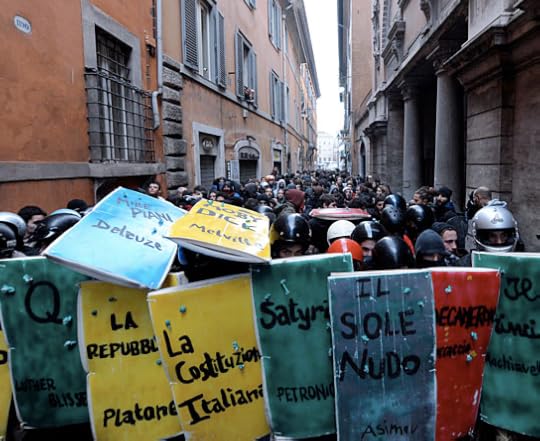
Students and teachers on the war path. Riots and demonstrations all over the country. High schools and universities occupied by the students. Violent clashes with the police in front of the Senate. Berlusconi's education reform is encountering blatant opposition, and the fact that the government is in crisis makes the movement raise its multifarious head even more. This afternoon, in Rome, students confronted the cops while carrying shields with book titles on them. The meaning was: it is culture itself that's resisting the cuts; books themselves are fighting the police. It was in this incendiary midst that our novel Q showed up, and in good company to boot: Moby Dick, Don Quixote, Plato's The Republic, A Thousand Plateaux… These pictures appeared on the websites of the most important daily papers. It goes without saying that, whatever will happen, we're proud of what our novel is doing in the streets. Omnia sunt communia!


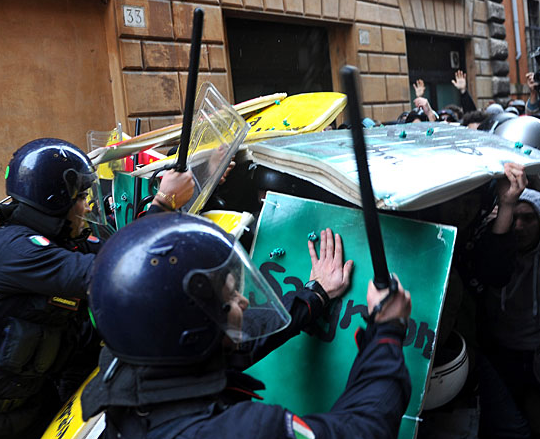









November 18, 2010
Berlusconism without Berlusconi
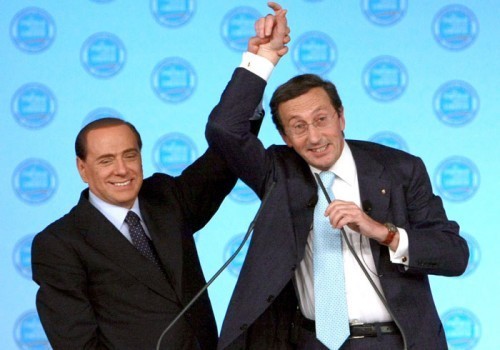
Silvio Berlusconi and Gianfranco Fini
The London Review of Books blog published an article we wrote to dispel some dangerously hopeful fantasies on Berlusconi's decline.
People ask us: Is this the end for Berlusconi? And we answer: No, it isn't. Not necessarily. And even if it were, it wouldn't be the end of Berlusconism as a fetishistic mass cult, an ideological current in Italian life and a certain way of using the media.
The most likely outcome is Berlusconism without Berlusconi. His former allies who are strong-arming him into resigning as prime minister are preparing a continuation of Berlusconism by other means. Gianfranco Fini, the former neo-fascist who is now being idolised even by some left-wing amnesiacs, is yet another Man of Destiny pretending to have come to town this morning. People seem to forget that Fini is still the man who was in alliance with Berlusconi for 16 years; who took advantage of Berlusconi's conflict of interests; who voted for every shameful bill on employment, the environment, the judiciary and so on; who supported the police in every case of brutality against demonstrators, strikers or prison inmates; and who personally devised two very repressive pieces of legislation: the Bossi-Fini Act on immigration and the Fini-Giovanardi Act on drugs. In Italy, amnesia rules.
Read the rest on the LRB blog.









November 15, 2010
A nomination, an interview and a bunch of trans(l)ations
Manituana nominated for IMPAC International Literary Award (Dublin).
"A Choral, Polyphonic World". WM1 and WM4 interviewed by 3AM Magazine.
Altai will be published in Greece by Exarchias Press.
WM4′s solo novel Stella del mattino [Star of the Morning] will be published in Spain by Machado/Acuarela.
Q's film rights were acquired by Fandango.









November 7, 2010
Notes on Pimp Power in Italy, part 1: Burlesquoni is no Father

by Wu Ming 1
1. THE NAME OF THE FATHER HAS EVAPORATED
The latest wave of pseudo-scandals and false events had the merit of making unmistakably clear what the «Discourse of Burlesquoni» is and how it operated for all these years. Do you hear the discourse? Everybody does. It goes:
«Italians who voted for me, this is my message: do whatever the fuck you want to! Do like me! You want to drive at 150 kmh on the highway? I'll abolish speed limits! You want to evade taxes? I'll pass yet another tax amnesty! When you told me you needed to cook your company's books, I decriminalized accounting fraud. Wanna hang out with young whores? I'll join the party! Wanna swear and use cuss words? All together now: MERDA, CAZZO, FICA, ORCO DIO! Do whatever the hell pleases you (as long as it doesn't damage the interests of the rich) and I'll also do what I please. Above all, I'm goin' to issue decrees that are exclusively and blatantly (BLATANTLY, 'cause I can afford it!) to my advantage. You know that, I know that you know, and YOU KNOW THAT I KNOW THAT YOU KNOW!»
Of course there are still a few things Burlesquoni must officially deny having done. But he denies only officially, while winking at his followers.
It could be useful to think in terms of what Jacques Lacan called the Symbolic Father. It should be made clear that the Father can also be a woman. As I'm just taking some inspiration from Lacan without embracing all of his theories (I'm not interested in such things as the Oedipus Complex), in order to avoid misunderstandings I will use the phrase «Symbolic Parent».
Lacan famously used the pun «Le nom du pére» (the Father's name) / «Le non du pére» (the Father's "no") / «Les non-dupes errent» (Non-fools wander).
The Symbolic Parent provides a balance between law and desire, that is to say: the Symbolic Parent teaches you that you can't do whatever the fuck you want to (law), and at the same time tells you that you have to achieve self-determination (desire). Whoever takes this function in your life is your Symbolic Parent, and you may have more than one at different stages.
The tension between your desire to rebel against the Parent (ie to transgress the law) and your need to be «put on your own track» (ie to grow and become yourself a founder, a parent, an originator of something) is a necessary driving force in anyone's life. It's part of what psychoanalysis used to call «the Reality Principle». Those who think they're smarter – or more freedom-loving – than everyone else and can do without the Symbolic Parent are destined to be led astray by desire, condemned to err, to wander around. Les non-dupes errent.
Power has long played the game of Symbolic Fatherhood: monarchs, religious leaders, heads of State, prime ministers, CEOs, secretaries of central committees, they all – consciously, half-consciously or even unconsciously – activated a «family frame» (more on this in a while) in which they occupied the position of the Symbolic father, either strict or nurturant, stern or compassionate. Of course the President-as-Parent is not really your Symbolic Parent: he doesn't even know you, most likely you saw him only on TV and in newspaper pictures. Here «Symbolic Parent» is a metaphor in which a power figure embodies images, fantasies and stereotypes of parenthood (think of Sarah Palin as «Mama Grizzly») and mocks a function in the Symbolic order.
For those who are ill at ease with psychoanalytical terms (and I confess that I myself don't like them), let's switch to cognitive sciences. Parenthood is the metaphor at the basis of what cognitive linguist George Lakoff called the «nation-as-family frame».
«It's no accident that our political beliefs are structured by our idealizations of the family. Our earliest experience with being governed is in our families. Our parents "govern" us: They protect us, tell us what we can and cannot do, make sure we have enough money and supplies, educate us, and have us do our part in running the house. So it is not at all surprising that many nations are metaphorically seen in terms of families: Mother Russia, Mother India, the Fatherland. In America, we have founding fathers, Daughters of the American Revolution, Uncle Sam, and we send our collective sons and daughters to war [...] As with other aspects of framing, the use of this metaphor lies below the level of consciousness. But unlike other, more modest framings, the nation-as-family metaphor structures entire worldviews, organizing whole systems of frames in our brains [...] the homeland as home, the citizens as siblings, the government (or the head of government) as parent.» (G. Lakoff and the Rockridge Institute, Thinking Points, Farrar, Strauss & Giroux, 2006, pp.48-50)
Within this frame two mental models are possible: the «Strict Father model» and the «Nurturant Parent model». The former shapes the worldview of right-wingers and conservatives, the latter shapes the worldview of progressives and leftists (and is of less interest to me in this text). In the Strict Father model
«children are born undisciplined. The father teaches them discipline and right from wrong. When children disobey, the father is obligated to punish, providing an incentive to avoid punishment and helping his children develop the internal discipline to do right. This "tough love" is seen as the only way to teach morality. Children who are disciplined enough to be moral can also use that discipline as adults to seek their selfinterest in the market and become prosperous.» (Thinking Points, pp. 57-58)
It seems to me that most 19th and 20th century radical/revolutionary theories took the forms we all know while reacting to the Strict Father model. That was the conceptual frame they actually had to face, and they devised a counter-rhetoric, ie the anti-authoritarian discourse in all its variants. Revolt against Authority, disobedience to the law, «arm your desire», Eros vs. repression and the Reality Principle, unchain your instincts, liberate your body, sexual freedom, let differences and singularities burst out, rhizome vs. tree, go feral! From Anarchism to a certain kind of Post-Structuralism through Reich, Marcuse, Freudo-Marxism, the Situationists and radical feminism, all strands and currents of anti-state, anti-authoritarian, anti-chauvinist, anti-capitalist radical thought framed their critique in the "non-dupe" terms of creative disorder fighting a repressive order. They were theories for symbolic sons and daughters, in the sense that Power (be it the government, capital, religion etc.) as a Strict Father was the «objective correlative» of their discourses and practices. In some cases the metaphor was reversed: not nation-as-family and boss-as-father, but family-as-nation and father-as-boss. This is a very rough summing-up of the position taken by Deleuze & Guattari in regard to the Oedipus Complex. Yet, to reverse the frame is not to disactivate it, and in fact D&G's theory is the summa of "non-dupe" attitudes (and "wandering" is explicitly proposed as a radical strategy).
However, in Italy – and Italy has always been an important social laboratory, forewarning the world of what was around the corner – this «objective correlative» has long been in crisis, and Power inhabits the empty space created by the disappearance of the Symbolic Parent.
Take Burlesquoni. He couldn't care less about posing as a strict father. He may have activated the nation-as-family frame at the beginning of his political career (pictures showing him with his children etc.), but he no longer gives a shit about it. No balance between law and desire. He openly chases pussy. He associates himself with escorts and even underage girls. He swears in public. He tells racist and sexist jokes with no shame at all. More or less, he has come to represent himself as an old-but-still-quite-young satyr. He's in denial of ageing. He's gotten more facelifts and hair transplants than any male public figure in the world (and he jokes about it).
Half of Italy's public opinion loves him not in spite of all this but because of it, and he knows it. That's exactly the way they want him, they want to hear him shouting his Discourse. Burlesquoni is the Italian king of ethical laissez-faire. Thus there is no law except the «ad personam laws» [laws specifically devised to keep Burlesquoni out of prison, t.n.], then there's no balance, desire has no counterweights.
Of course, Burlesquoni is just the state-of-the-art anthropomorphosis of a more general tendency to destructive jouissance [enjoyment]. Nowadays the Capital/Super-Ego gives us a precise order: «Enjoy!». I am not saying anything new, it's a very well known situation.
What are today's main conceptual frames and dispositifs concerning gender issues and the problem of sexual freedom? Does anyone think that, concerning instincts, the main problem to be faced today in the West (and especially in Italy) has to do with censorship of sexual imagery and sexophobic repression of bodies on part of the powers-that-be?
Power has become pornocratic. Porn has spectacularly overflown the boundaries it occupied as a genre of popular culture. The Burlesquoni-controlled Italian TV is chock full of naked bodies, mountains of tits and asses. Such documentaries as Erik Gandini's Videocracy (2009) and – even more so – Lorella Zanardo's Women's Bodies (2009, embedded below with English subtitles) have shown foreigners to what extent Burlesquonism based its power on the hyper-sexualization of daily life.
[To be continued]












